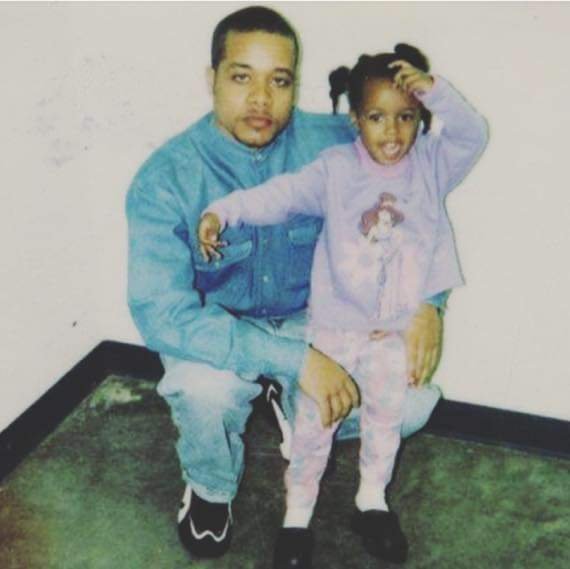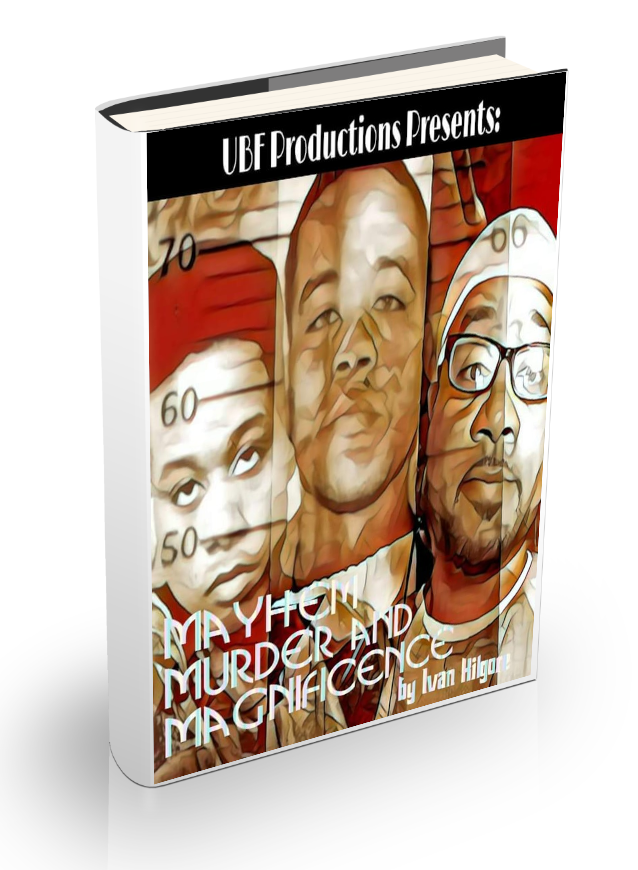Prison Life
The following is an excerpt from my latest book Domestic Genocide: The Institutionalization of Society
I begin by informing you that institutions affect people in both positive and negative ways.
Arguably, the positive aspect of prisons in American society has been said to remove presumably criminal elements from the community.
The down side, however, is mass incarceration of Black males, for example, destabilizes family and other social networks in the community.
Here, I borrow from Professor Todd Clear’s Imprisoning Communities: How Mass Incarceration Makes Disadvantaged Neighborhoods Worse.
Clear provides a “coercive mobility theory” that states: “… high rates of incarceration, concentrated in poor communities, destabilizes social networks in these communities, thereby undermining informal social controls, economic prosperity, and stability.”
It is important that we observe here that social networks are composed of “human” and “social” capital. Both human and social capital are the building blocks of a community’s social and economic progress. Human Capital refers to the personal resources an individual brings to the social and economic marketplace.
A typical example of human capital is education or a particular skill-set like experience in sales and marketing. Others include the ability to pickup on things fast (intellect) and ease in social situations….
“Social Capital,” as defined by Clear, “is the capacity of a person to call upon personal ties (usually within social networks) in order to advance some personal interest. Social capital and social networks are related.
Social networks define the underlying structure of interpersonal relationships that hold the capacity for providing social capital; social capital is the capacity of networks to provide goods for people within these networks.”
Social capital is a relatively new concept in the social sciences. It has come to indicate that networks of social relationships represent a “resource” for both the individual and the community, since they provide support for the individual and facilitate collective action.
Although this is not an entirely new idea, the more systematic way in which capital captures such an intuition has created a new theoretical paradigm and has assisted to develop a series of innovative research programs in politics, economics and the study of human progress.
Or, in the case of the ghetto, the destabilization of communities. As this suggests, the systematic approach to manipulating social capital has gained currency beyond mere academic rhetoric and has for ages extended itself to the various social policing measures which influence the ghetto.
My lil’ sisters, on the other hand, have struggled with the disparaging affect that came of the periodic welfare our mother received when we were kids. Needless to say, this for our parents was yet another drug; torpid and systematic like the old plantation system that created the African slaves’ subservient mentality….
Yet, there has been a greater impact on my community with my incarceration. Sure, me poisoning it with dope and lead was of no benefit. My activities were simply a means to an end that I believed at the time would better situate my family and I.
During the course of my incarceration I’ve noted how many of my friends and associates have fallen out with each other. Homies have killed and robbed homies out of greed and envy. Some have turned-state; became addicted to hard drugs; and not handled their business as fathers. Many have remained “stuck”—having not advanced beyond the illegal activity we were engaged in as young hustlas tyrin’ to get a buck.
Consequently, I feel this has occurred due to my absence in influencing block affairs, which has caused things to get outright messy. No longer is there any integrity; principle guiding better judgment.
Moreover, there is no solidarity. Up until I was incarcerated, I sponsored a number of weekly events ranging from BBQs to house parties that allowed for the ‘hood to come together and address issues. In addition, I encouraged the homies to attend the local NAACP community meetings, which I often partook in in an effort to facilitate solace between the young hustlas and the old heads. All this, of course, has come to an end over the years. No one stepped up to fill my shoes. So people in the community kind of just went their own way.
What has been the greatest impact of my incarceration? That, I’ll say, has been the effect it has had on the relationship between my daughter and I. She was 5 years old when I got locked up. She’s now 24. I’ve only seen her one time on account of the fact that she lives in Oklahoma. And while we speak regularly, I know that my influence in her life has been limited in terms of assisting to develop her confidence, ambition, goal orientation, and providing a positive example of male and female relationships.
These things and more have affected her in such a way she makes a poor decisions in respect to the type of men she dates; she doesn’t value education, she doesn’t have a healthy self-image of herself and, because of this, she is not motivated to do much of anything.
Now, I’ve used the above to paint a larger picture. Where I have drawn on the negative impact of my incarceration, Professor Clear magnifies the impact by urging us to consider the deteriorating impact on poor communities around the nation where millions have been incarcerated. Using the metaphor “death by a thousand little cuts,” which represents the instability caused by the removal and return of a significant number of individuals for prison, Clear points to the fact that “communities that provide large numbers of prisoners to the state and federal prison system struggle in a variety of ways. The laundry list of social and economic problems which ensue are extensive and beyond the mere examples that I have provided. Ultimately, they lead to a complete breakdown of “collective efficacy.”
Take for example how in the aftermath of Hurricane Katrina countless poor Black Americans were without the necessary “collective efficacy” to aid themselves or others. The high level of social disorganization witnessed in the New Orleans crisis [speaks to] the gravity to which America’s penal institution has devastated the collective efficacy in poor Black communities… [It makes cities like New Orleans repositories of surplus population that are incarcerated at disproportionate rates].
This is only a small take on the impact of prison on my life and family. It is a difficult subject for me to address and really open up to. I can only hope that with what little I have provided I have assisted you to understand that this is one institution that is definitely destroying the lives of those who are connected to it as well as those who are locked up and hidden behind it’s walls.
Published Books
Best Sellers
Happy Readers
Other Books
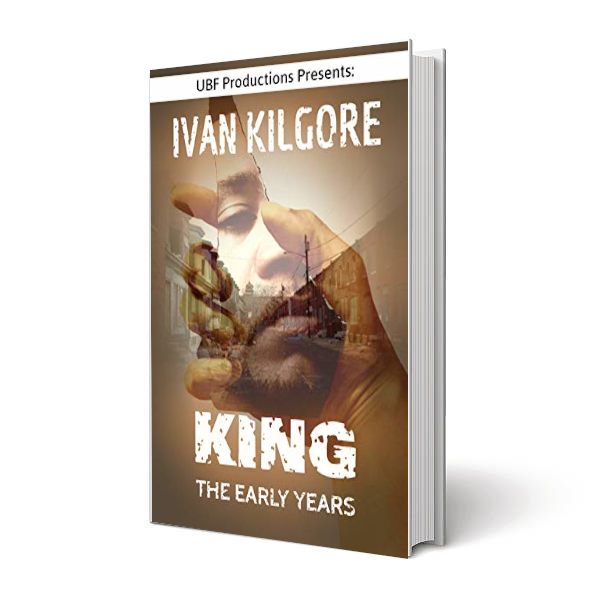
King: The Early Years by
author Ivan Kilgore
For fans of Ashley Antoinette & JaQuavis Coleman’s Cartel series or Sister Soulja’s Coldest Winter Ever, King is a must read!
The series focuses on the African-American, Asian and Latino ghetto communities and rural experience. Entertained by the cheap thrills of violence and promiscuity that fill the pages of most Urban novels?
Then you will be intrigued with the schemes and fantasy of beating the odds in the streets with King. Or maybe you simply want to vicariously experience the life of those who have?
Not a fan of street literature? Well, you just may want to study this genre to analyze its connection to Urban mythology and its impact on ghetto communities across the United States. Gangs, drugs, violence, promiscuity, and criminal activity are the norms in this series.
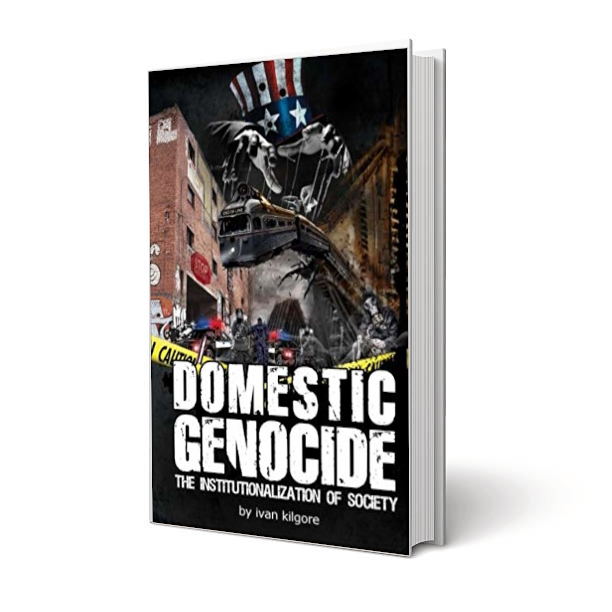
Domestic Genocide by Ivan Kilgore
In what has become a highly controversial topic, American institutions have come under fire. As a growing number of committed scholars and advocates for social justice have caught the vapors and awoke.
These institutions have been designed with the sole intent of organizing American social and economic life to the advantage of its predominantly white ruling class.
In the case of many Black Americans and other people of color, this often means that their communities and lives will be exploited to the fullest.
Coming December, 2020!
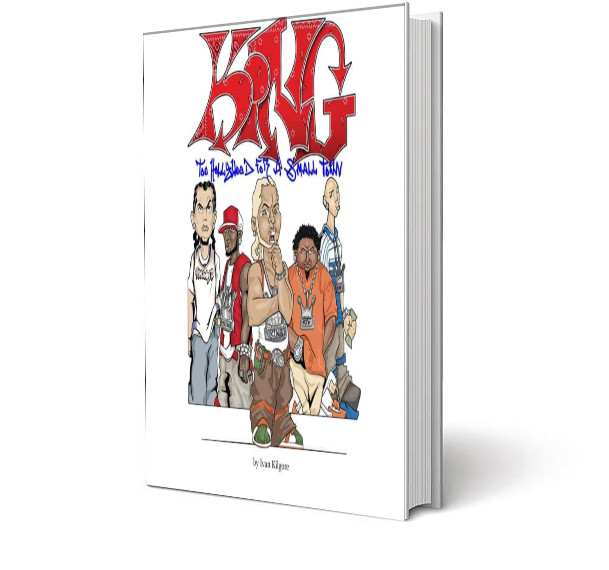
KING
Book 2
by ivan kilgore
KING: Too Hollywood for A Small Town Book #2–a graphic novel and animation film short by Ivan Kilgore
Blessed into the Game, King struggles to walk away from becoming a legacy to the most ruthless drug lord and cybercriminals in Seminole County. His crew, the Get Rich Gang, fall into the lure of money and power, and one by one, they turn on each other.
As a matter of principle, this forces King to murder one of his lieutenants. This lands him in the box. Facing a capital murder charge, he discovers the streets of Wewoka, where necessity knows no law, are not big enough to feed his dreams and finally comes to grip with the lessons that his mother and family have imparted to him….
Mayhem, Murder and Magnificence chronicles the inspirational story of Ivan Kilgore who, after suffering a wrongful conviction for first-degree murder and being sentenced to life without the possibility of parole, set out to build a successful, multi-million-dollar community-based organization from within the walls of a maximum-security California prison.
Born into a world of chaos, murder and mental illness, this is a story about a country boy from Oklahoma who turned tragedy on its head by taking everything he learned from small-town trappin’ to big city hustling to lessons learned while fighting for his freedom after spending over 20 years in some of the nation’s most violent prisons.
The Ivan Kilgore Blog
Follow Along
Hello world!
Welcome to WordPress. This is your first post. Edit or delete it, then start writing!
Ivan kilgore
Hello world!
Welcome to WordPress. This is your first post. Edit or delete it, then start writing!
Ivan kilgore
Hello world!
Welcome to WordPress. This is your first post. Edit or delete it, then start writing!
